Entry Level Construction Jobs: Start Your Career Now
In these jobs, you can learn basic skills on the job such as helping with projects building a home, office or road. You may be lifting materials, assisting skilled workers or keeping a site clean. Construction is a fast growing field with plenty of opportunities for beginners offering a solid chance to build a career with stable pay.
Why Are Construction Jobs Important?
Construction jobs build the buildings and infrastructure every community needs. These jobs are stable, offer good salaries, and beginners also get a strong path of future growth.
Why is it easy for beginners to start?
You do not need a degree or experience. Many jobs provide on the job training meaning you get a chance to learn while working. So if you are ready to learn, construction is a great option.
Types of Entry Level Construction Jobs

Many roles are available for new people. Every job teaches some different skills and opens new doors for growth. Some common roles are given below:
| Job Title | Main Tasks | Average Salary |
|---|---|---|
| Construction Laborer | Carry materials, clean sites, assist workers | $35,000–$45,000/year |
| Carpenter Helper | Help cut wood, hold materials, learn tools | $36,000–$46,000/year |
| Painter’s Assistant | Prepare surfaces, mix paint, clean brushes | $34,000–$44,000/year |
| Mason’s Helper | Mix mortar, carry bricks, assist masons | $37,000–$47,000/year |
| Flagger | Direct traffic, ensure safety at sites | $32,000–$42,000/year |
Construction Laborer
Construction laborers do general work such as lifting materials or clearing a site. They work on projects such as roads or buildings. https://www.bls.gov/ooh/construction-and-extraction/construction-laborers-and-helpers.htm According to the Bureau of Labor Statistics, there is a lot of demand for laborers and they learn skills while working.
Carpenter Helper
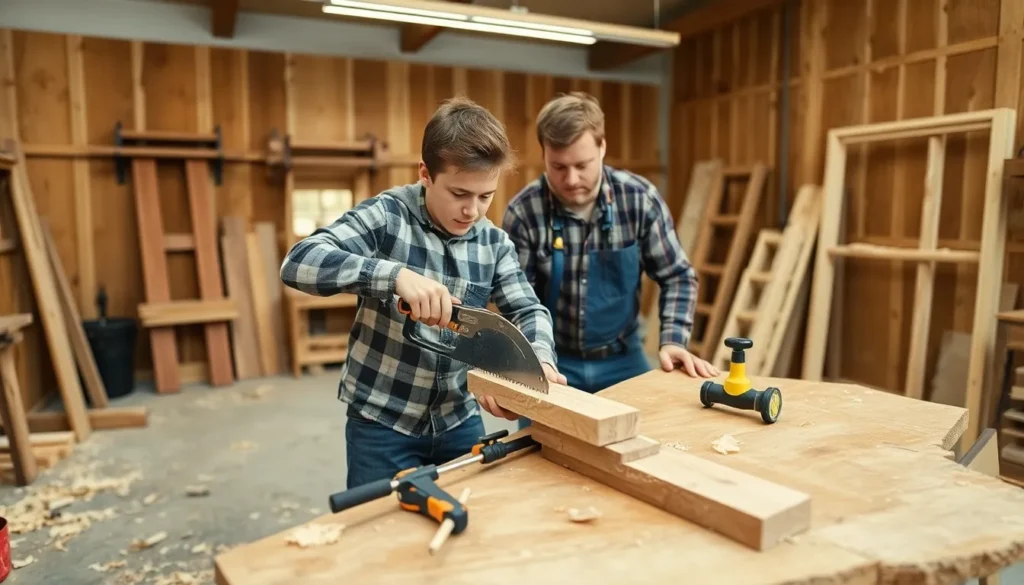
Carpenter helpers cut wood and build structures. You are also taught to use tools such as saws (aar). HomeAdvisor’s carpentry guide explains how helpers develop hands on skills. (https://www.homeadvisor.com/r/carpentry-basics/)
Painter’s Assistant
Painter’s assistants prepare walls, mix paint, and clean painting tools. In this role, you get to learn basic painting techniques. Sherwin Williams painting tips are very helpful for beginners. (https://www.sherwin-williams.com/homeowners/how-to/painting).
Mason’s Helper
Mason’s helpers make mortar (cement mixture), lift bricks, and assist masons. This role is best for people who want to pursue masonry. The Masonry Advisory Council’s resources are very useful in understanding masonry work.(https://masonryadvisorycouncil.org/).
Flagger
Flaggers control traffic on construction sites to keep workers safe. This role can be started with minimal training. Actually’s flagger guide explains how you can get started as a flagger.(https://www.indeed.com/career-advice/finding-a-job/how-to-become-a-flagger).
Why are Construction Jobs Best for Beginners?

Construction jobs are perfect for people who are starting their career as they offer stability, growth and hands on learning. See here why you should consider this:
High Demand
Nowadays the construction industry is in full swing – be it housing projects or infrastructure. According to the U.S. Bureau of Labor Statistics, job growth for laborers is quite strong and long-term demand will remain. (https://www.bls.gov/ooh/construction-and-extraction/home.htm).
Decent Pay
Entry level jobs have a salary of approx $32,000–$47,000 per year. As you learn skills, the salary also increases. Glassdoor’s salary data shows that even beginners are quite competitive. (https://www.glassdoor.com/Salaries/construction-laborer-salary-SRCH_KO0,20.htm).
Learn on the Job
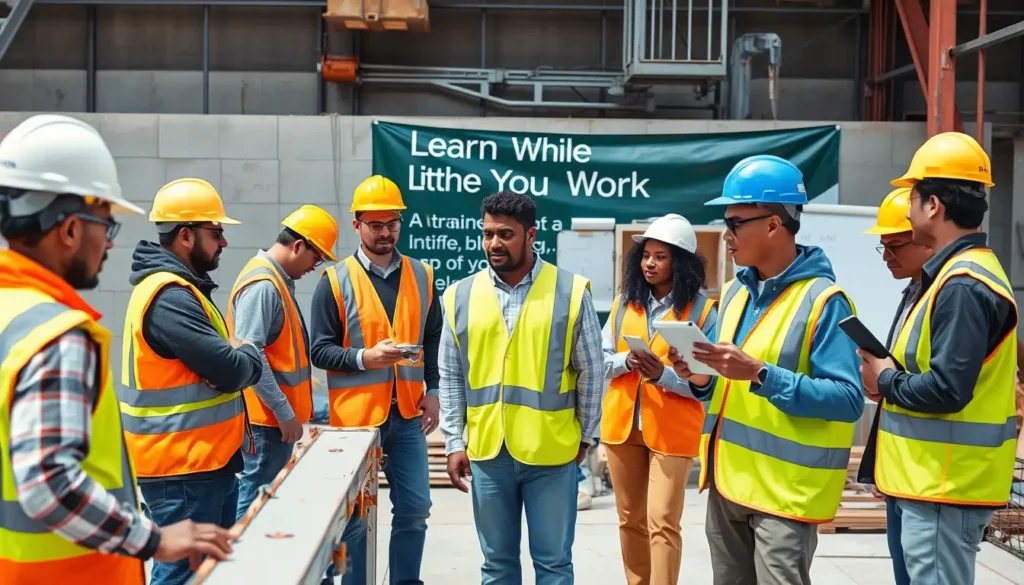
Most construction roles provide training meaning you learn on the job. If you need an extra boost, trade schools like Penn Foster offer short courses that are affordable (https://www.pennfoster.edu/programs-and-degrees/construction-trades).
Flexible Locations
Whether you’re in the city or a rural area, construction jobs are available everywhere. Indeed, you can search for job openings in any area of the U.S. making it easy to find work near home.(https://www.indeed.com/q-Construction-jobs.html).
Career Growth
You can start as a laborer and work your way up to foreman or contractor. Associated Builders and Contractors resources show how you can reach advanced roles with proper training and experience. (https://www.abc.org/Education-Training).
Essential Skills for Entry Level Construction Jobs
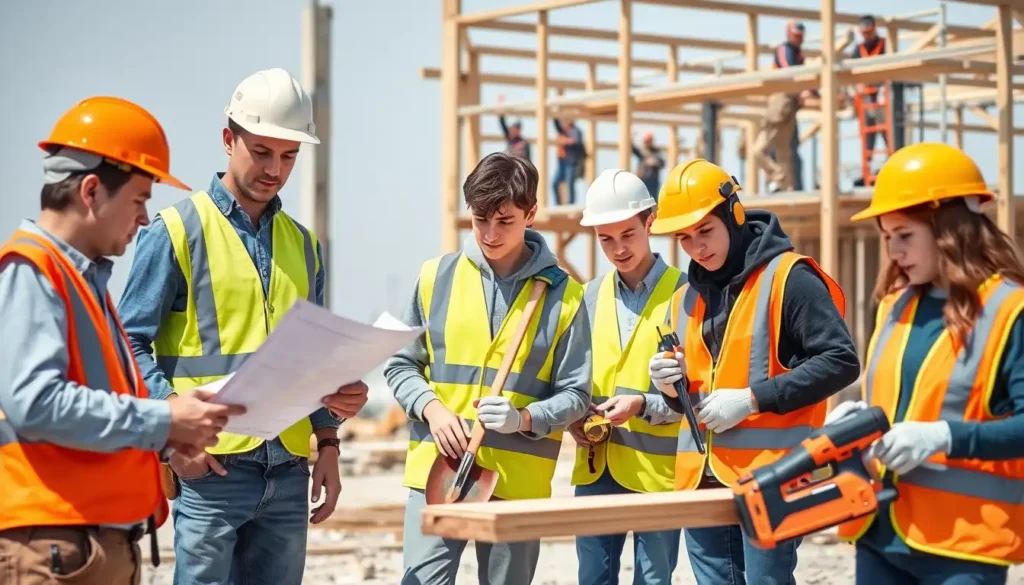
To start the construction field you need some basic skills and the good thing is that most of these skills are easy to learn. The table below clearly explains the important skills and how to develop them.
| Skill | Description | How to Learn |
|---|---|---|
| Physical Strength | Lift materials, stand for long hours | Practice lifting safely, stay active |
| Teamwork | Work with others on projects | Join group activities, communicate |
| Tool Use | Handle basic tools like hammers or drills | Watch YouTube tutorials, practice |
| Safety Awareness | Follow safety rules to avoid accidents | Take OSHA courses (https://www.osha.gov/training) |
| Time Management | Meet project deadlines | Use planners like Trello (https://trello.com/) |
Physical Strength
In construction jobs, lifting and carrying materials is part of the job. That’s why it’s important to stay a little strong. Regular exercise can help you build strength. OSHA’s safety guide teaches you how to lift weights safely (https://www.osha.gov/construction).
Teamwork
You’ll have to work together with other workers, so good communication and coordination are important. Coursera’s teamwork course teaches beginners how to improve teamwork.(https://www.coursera.org/learn/teamwork-skills).
Tool Use
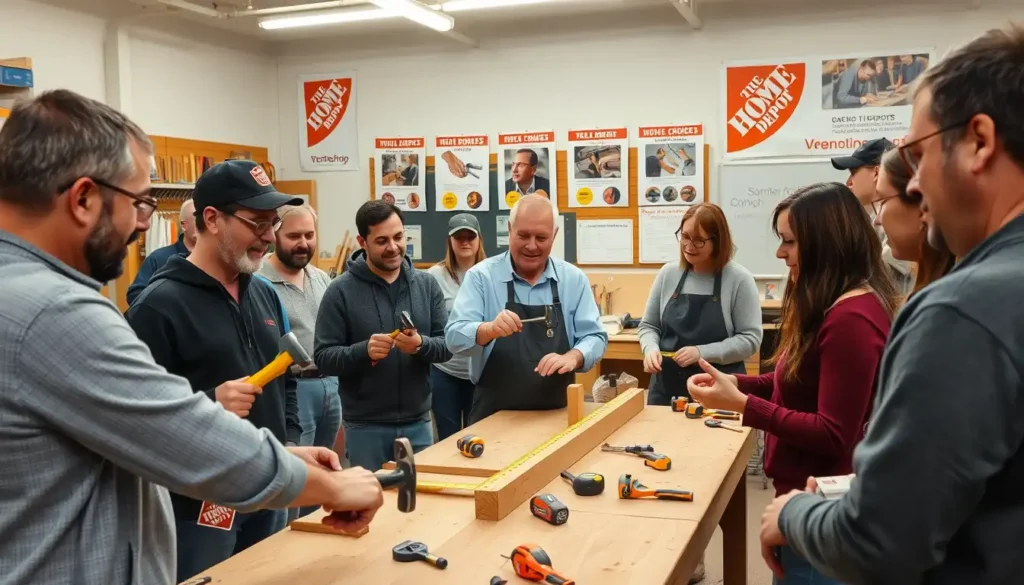
You should know how to use basic tools like hammer and measuring tape. Home Depot’s tool tutorials are perfect for beginners – they teach you step by step how to use tools safely.(https://www.homedepot.com/c/how_to_use_tools).
Safety Awareness
Safety is most important on a construction site. Helmet, gloves, proper footwear – everything has to be followed. OSHA’s free training teaches basic safety rules and protective gear.(https://www.osha.gov/training/outreach).
Time Management
It is important to finish the work on time so that the project is not delayed. Trello’s time management guide will help you organize work and meet deadlines. (https://trello.com/guide/time-management).
Tools and Equipment Used in Construction Jobs
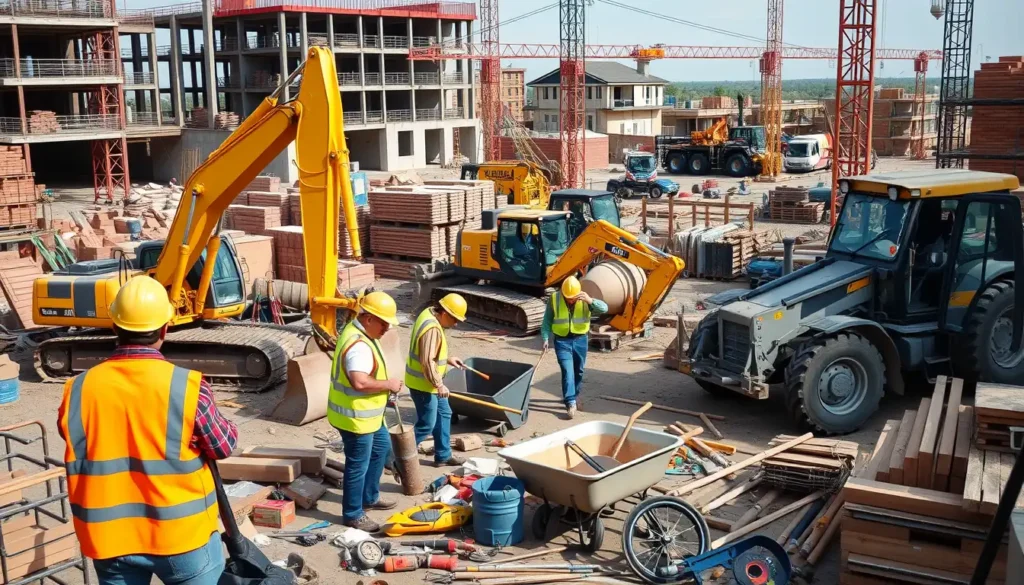
Beginners normally start with simple tools. Below is a table that describes common tools and their uses.
| Tool | Use | Where to Learn |
|---|---|---|
| Hammer | Drive nails, break materials | Home Depot (https://www.homedepot.com/c/tools) |
| Tape Measure | Measure lengths accurately | Lowe’s (https://www.lowes.com/c/Measuring-tools) |
| Utility Knife | Cut drywall, tape, or other materials | This Old House (https://www.thisoldhouse.com/tools) |
| Safety Gear | Protect with helmets, gloves, glasses | OSHA (https://www.osha.gov/personal-protective-equipment) |
| Drill | Make holes, fasten screws | Black+Decker (https://www.blackanddecker.com/en-us/how-to-center) |
Hammer and Tape Measure
The hammer is used to drive in nails, and the tape measure lets you measure the correct length so that cuts are accurate. Home Depot’s tool guide explains how to use these tools safely.(https://www.homedepot.com/c/tools).
Utility Knife
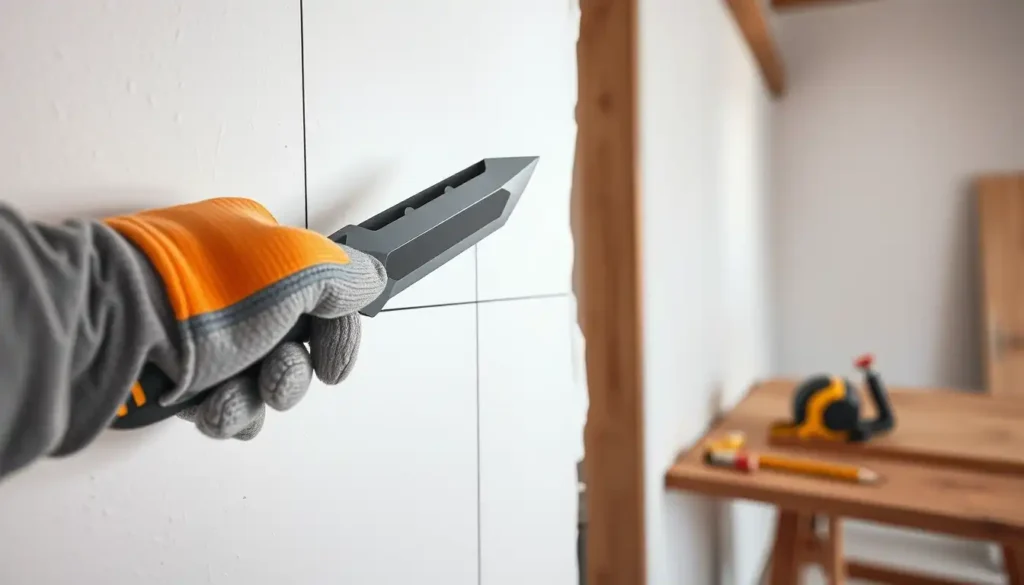
This knife is used to cut materials like drywall. This Old House offers useful tips for safe cutting(https://www.thisoldhouse.com/tools).
Safety Gear
Wearing a helmet, gloves, and safety glasses is a must so you can stay safe on site. OSHA’s PPE guide explains what gear to use(https://www.osha.gov/personal-protective-equipment).
Drill
The drill is used to make holes or tighten screws. Black+Decker’s drill guide teaches beginners how to use a drill correctly. (https://www.blackanddecker.com/en-us/how-to-center).
How to Get Your First Construction Job

Starting a career in the construction field is easy especially if you’re a beginner with no experience. The steps below are specifically for people looking for a first-time construction job.
Start Learning Basic Skills
Take short courses to learn the basics of construction tools or safety. Penn Foster’s construction courses are beginner-friendly and affordable. Check out: Penn Foster Courses(https://www.pennfoster.edu/programs-and-degrees/construction-trades).
Build a Resume
If you’ve had physical or teamwork experience in a previous job, include that in your resume. Indeed’s resume guide explains how to create a construction-focused resume: Indeed Resume Guide(https://www.indeed.com/career-advice/resumes-cover-letters/construction-resume).
Get Certified
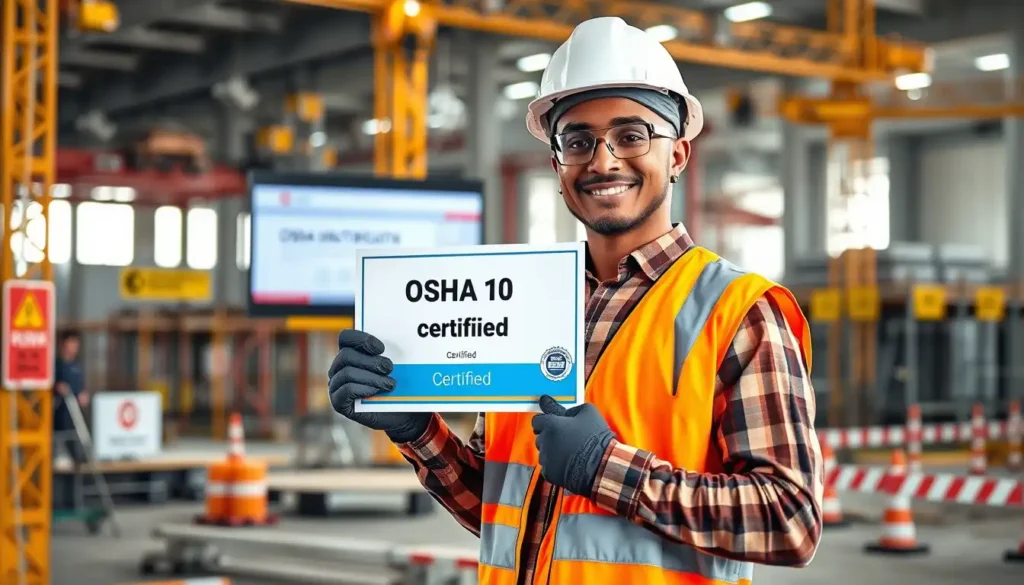
A simple safety certification like OSHA 10 makes you stand out. OSHA’s 10-hour course is perfect for beginners: OSHA Training(https://www.osha.gov/training/outreach).
Apply for Jobs
Search for “laborer” or “helper” type roles on job boards. Follow LinkedIn all over the U.S. Entry-level construction jobs are available: LinkedIn Jobs(https://www.linkedin.com/jobs/construction-jobs/).
Prepare for Interviews
Practice common questions like, “Can you work on a team?” Monster’s interview tips help you prepare: Monster Tips(https://www.monster.com/career-advice/article/construction-interview-questions).
Where to Find Entry Level Construction Jobs

Jobs for beginners are listed on several platforms. Here are some of the best places to search:
Thousands of construction jobs are available here. Use the “entry level” filter to easily find suitable roles.(https://www.linkedin.com/jobs/construction-jobs/).
Indeed
Indeed also provides salary information along with job listings. Perfect for searching local jobs:
Search on Indeed (https://www.indeed.com/q-Construction-jobs.html).
Glassdoor
lassdoor also provides company reviews along with job openings. This is helpful for finding good employers Search on Glassdoor(https://www.glassdoor.com/Job/construction-jobs-SRCH_KO0,11.htm).
Trade Job Boards
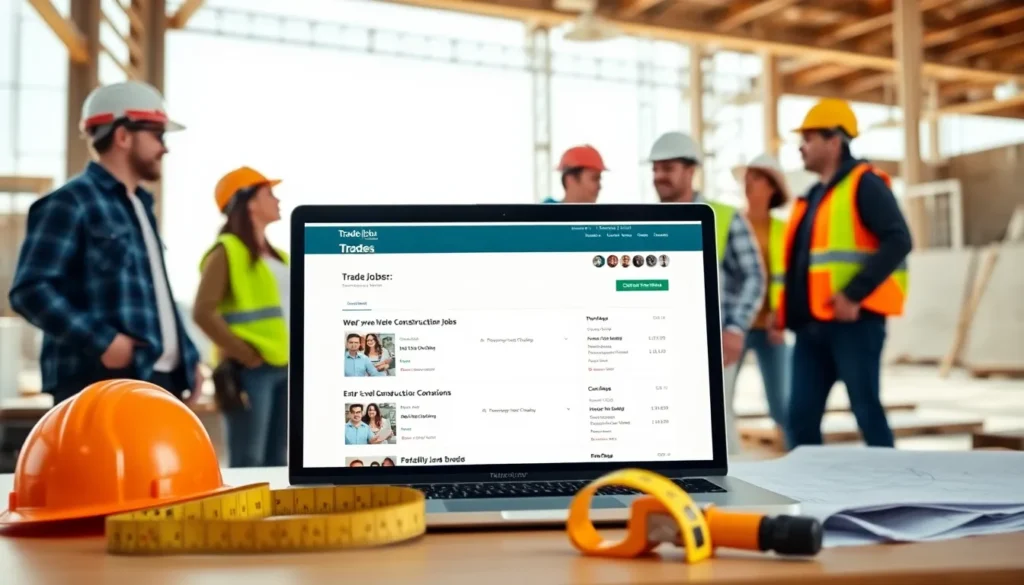
Sites like TradeJobs are specifically designed for construction jobs perfect for beginners. From entry-level to skilled roles, you can find them here.(https://www.tradejobs.com/).
Local Contractors
Visit construction companies or unions in your area directly. Associated General Contractors (AGC) helps you connect with local employers.(https://www.agc.org/).
Tips to Succeed in Construction Jobs
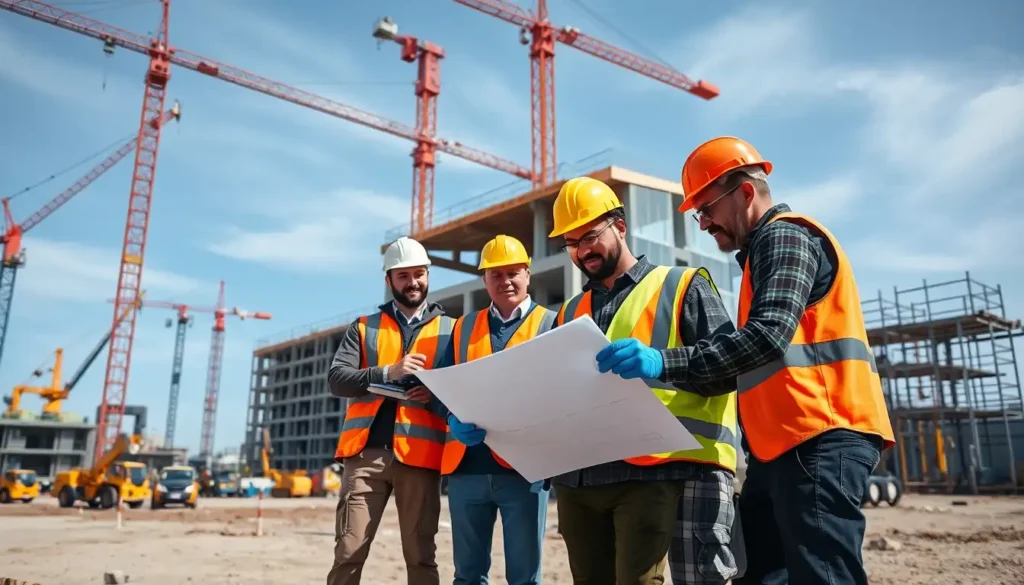
Once you get a job, these tips will help you become a good worker especially if you’re a beginner.
Stay Safe
Always follow safety rules and wear safety gear. OSHA safety tips tell you how to avoid accidents on site: (https://www.osha.gov/construction/safety).
Learn from Others
Observe experienced workers you can learn tricks and smarter ways from them. You will find a lot of useful resources on the National Association of Home Builders site: (https://www.nahb.org/).
Build Skills
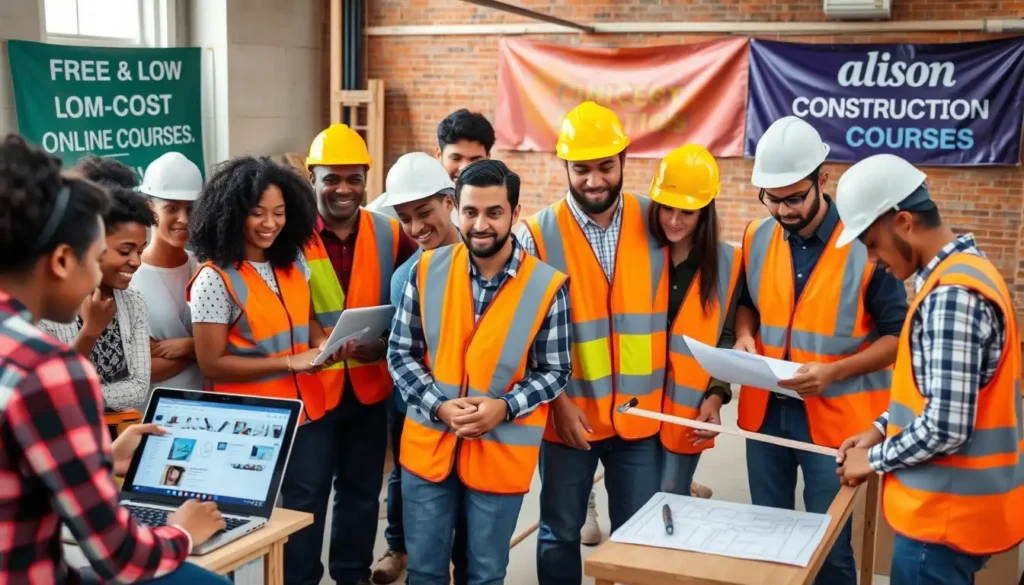
Improve your skills with free or low-cost courses. Beginner-friendly courses for construction are available on Alison: (https://alison.com/courses/construction).
Be Reliable
SComing to work on time and working hard matters a lot. Indeed’s tips tell how being reliable helps in your growth: (https://www.indeed.com/career-advice/career-development/how-to-be-reliable).
Network
Build good connections with coworkers and supervisors – this is where new job opportunities or promotions come from (https://www.linkedin.com/pulse/how-network-construction-industry).
Challenges in Construction Jobs And How to Overcome Them

Beginners face some hurdles in construction jobs but don’t worry! Below are solutions to those common problems:
Physical Demands
Work can be physically exhausting at times. To build some stamina, do regular exercise and take rest. WebMD’s fitness tips help in making the body strong: (https://www.webmd.com/fitness-exercise/default.htm).
Learning Tools
Tools like a drill or hammer can seem difficult in the beginning. This Old House’s YouTube tutorials are perfect for beginners to practice: (https://www.thisoldhouse.com/tools).
Safety Risks
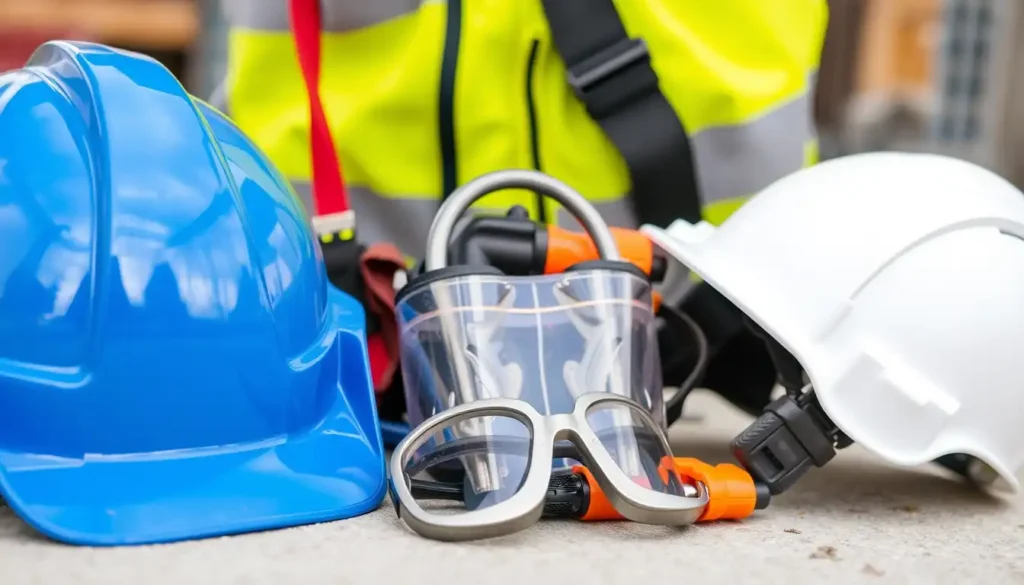
CConstruction sites can be risky. OSHA’s free safety training course teaches basic safety rules a must for every beginner: (https://www.osha.gov/training/outreach).
Finding Jobs
Entry-level jobs can sometimes be tough. Use multiple job boards like Indeed and LinkedIn to increase your chances.
Lack of Experience
Some employers ask for experience. Highlight transferable skills like physical strength or teamwork on your resume. Monster’s guide is helpful for beginners: (https://www.monster.com/career-advice/article/no-experience-job).
Real World Examples When Beginners Did Amazing
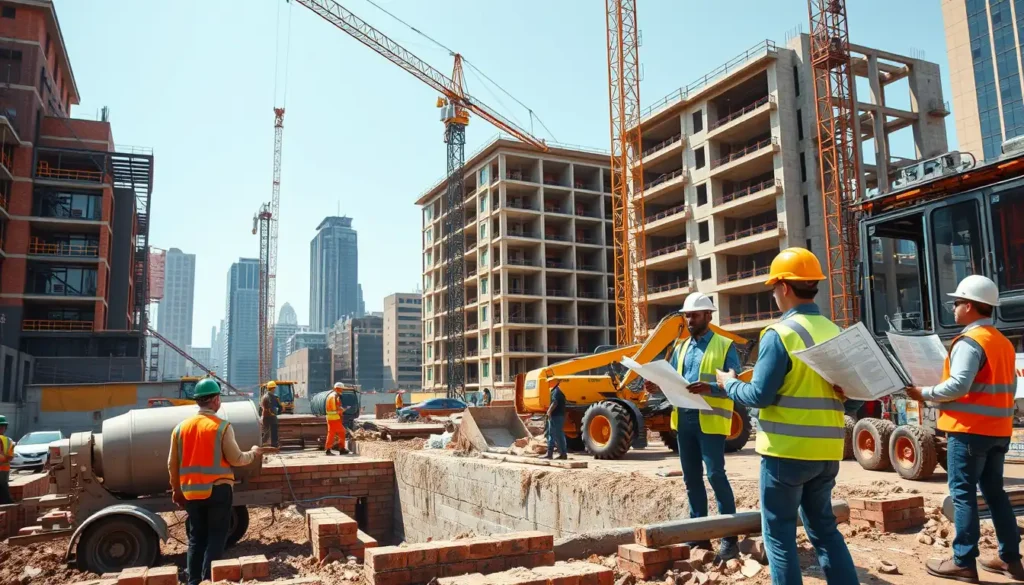
here’s how beginners succeed in life:
Retail Renovation
A laborer helped build a new store lifted materials and learned from carpenters. Within 6 months he was promoted and earning $35,000.
Road Construction
A flagger directed traffic on a highway project he kept himself safe with the help of OSHA training, and moved up to a laborer role within a year.
Home Building
A carpenter helper helped with framing, learned skills from a mentor, and became a full time carpenter after completing Penn Foster’s online courses.
The Future of Construction Jobs

The construction industry is growing rapidly as demand for housing and infrastructure is increasing. New tools and smart equipment will make work easier as Construction Dive has highlighted:(https://www.constructiondive.com/news/construction-technology-trends-2025/703128/).
Future Trends in Construction Construction Dive. If you learn the basic skills now, you’ll be ready for future changes whether it’s automation or advanced tools
External Resources for Your Help
- Bureau of Labor Statistics: Construction Jobs – Learn about construction job trends and salaries.
- Indeed: Construction Careers – Explore entry-level construction job opportunities.
- OSHA: Construction Safety – Understand safety requirements for construction work.
Conclusion
Entry level construction jobs offer beginners the opportunity to start a strong career with good salary, growth, and hands on learning. If you learn basic skills, learn to use simple tools, and apply for jobs on platforms like LinkedIn, you can easily enter the industry.
Work safely, work hard, and always learn something new so that your future can become strong in the construction field.
FAQ’s
1. How to get a job in construction with no experience?
Start by applying for entry-level laborer or helper roles and be willing to learn on-site.
Get basic safety certifications like OSHA 10 to boost your chances.
2. How to start your career in construction?
Begin as a laborer, apprentice, or intern and work under skilled tradespeople.
Consider enrolling in a trade school or union training program for advancement.
3. What construction jobs pay $50 an hour?
Jobs like electricians, plumbers, crane operators, and project managers can pay $50/hr or more.
These usually require certifications, experience, or union affiliation.
4. Can you land a job with no experience?
Yes, many construction companies hire reliable workers without experience for entry-level roles.
Show a strong work ethic and willingness to learn on the job.
5. Is construction a high paying career?
Yes, skilled trades and management roles in construction offer high pay and job security.
Pay increases significantly with experience, specialization, and certifications.
6. How to get a job as a construction laborer?
Apply to local contractors, staffing agencies, or construction sites directly.
Highlight physical fitness, reliability, and any hands-on or volunteer work.


